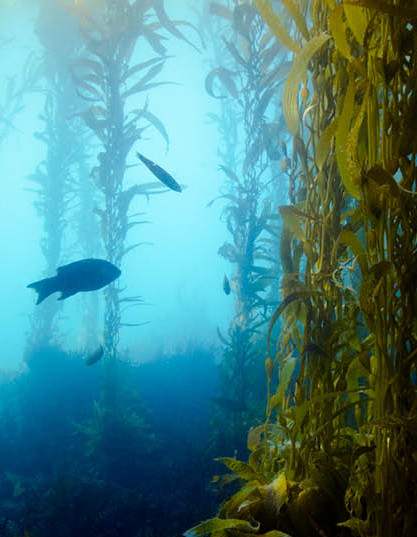Kelp help required
 The “forests of the sea” are worth billions of dollars, but are also at serious risk.
The “forests of the sea” are worth billions of dollars, but are also at serious risk.
A new study has revealed that nearly one-third of the world’s coastal ecosystems depend on kelp, a type of large seaweed, to mitigate local pollution and sustain fishing industries that provide billions of dollars in benefits.
However, kelp forests are under threat from the climate crisis, overfishing, pollution, and invasions of sea urchins. The loss of kelp forests could not only impact the economic benefits they provide but also the vast array of species they support.
Dr Aaron Eger, the lead author of the study, says; “If we lose these kelp forests, then we lose the oceans as we know it across massive regions all over the globe”.
The study, published in Nature Communications, examined how six common types of kelp provided services that benefit societies.
It revealed that the world’s kelp forests absorb excess nitrogen and phosphorus running into oceans from the land, and were likely absorbing the equivalent of about 18 million tonnes of CO2 every year.
Kelp also serves as a habitat for harvested fish and seafood, with every hectare of kelp forest providing an average of about 900kg of harvested fish and seafood annually.
Eger, a marine ecologist at the University of New South Wales, said that the critical role kelp plays in absorbing nitrogen, phosphorus, and carbon, and keeping coastal environments healthy had gone underappreciated and understudied.
The study calculated the amount of nitrogen, phosphorus, and carbon dioxide being absorbed by kelp forests worldwide and monetary values for each, marking the first time a global assessment of the value of kelp forests has been attempted.
The study found that kelp forests also offer the building blocks for fisheries of abalone, lobsters, and reef fish.
Furthermore, about 740 million people worldwide live within 50km of kelp-dominated marine environments. However, in some areas, including northern Tasmania, Western Australia, and northern California, losses of up to 95 per cent of kelp have been recorded.
Eger said the underlying cause of kelp losses was marine heatwaves that killed it off, but overfishing that removed the natural predators of urchins that eat through the forests also contributed.
He said that some steps being taken included the physical removal of urchins, improvements in controlling pollution, and the replanting of kelp that, under the right conditions, could grow rapidly.
Eger is the founder of the Kelp Forest Alliance, a not-for-profit group trying to raise awareness of the role of kelp and encourage voluntary pledges for conservation projects around the globe.







 Print
Print